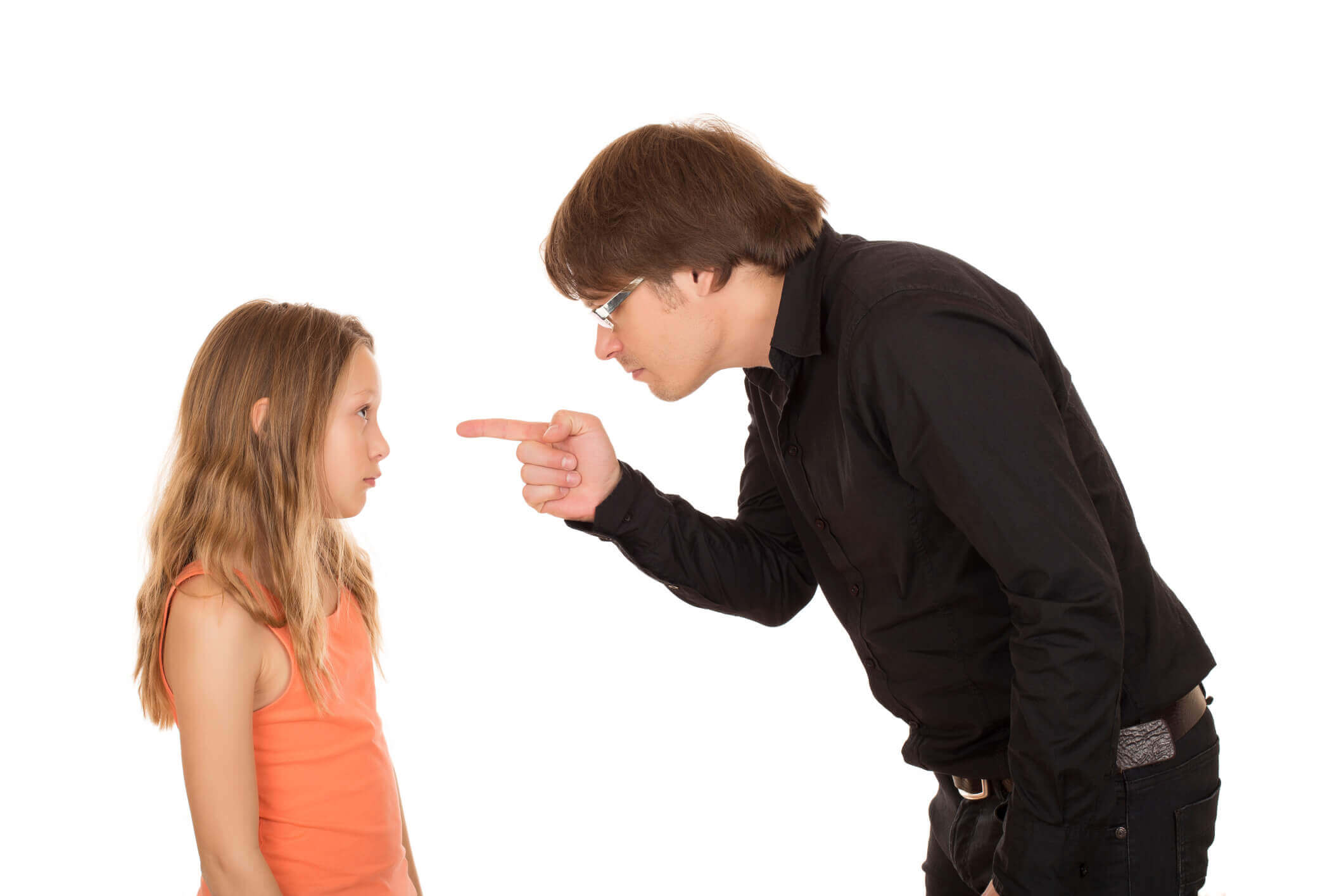What to Do if Your Child Hits at School

When a child hits at school, it can be an emotional shock for parents and create a very difficult situation for teachers.
This behavior in children puts the physical and mental health of their peers at risk. And, of course, your child’s future personality and friendships are also both an issue.
You may feel that you’re not raising your child correctly. This issue can also make parents very uneasy, since it happens when you’re not nearby to resolve the situation.
These types of events tend to happen when a child is very impulsive, or things aren’t going well at home. However, it can also occur when a child is imitating someone or is trying to get attention.
If, growing up, children see constant aggression and interactions based on shouting and insults from their parents and in their environment, that child will follow this behavioral pattern themselves.
Similarly, if they see a close family member treat other people badly and behave violently, they may also follow suit.

What Can Happen if My Child Hits at School?
The first thing that may happen if your child hits at school is that he or she may be attacked by other children. If your child pushes them beyond their level of tolerance, other children may take the solution into their own hands.
On the other hand, the school administration may take drastic measures, perhaps as severe as expulsion from the school.
Your child’s peers may reject him, leaving him alone or spending time with the wrong people. Furthermore, the social impact is also important in these cases, since the environment where the child or adolescent develops this behavior may start to reject him.
In the saddest cases that parents fear most, the behavior is so bad that the child is sent to a reform school.
1. Communicate with your child
Talk with your kids honestly about what happened. Ask them how you can help. It’s always important to maintain open communication with your children so you know their concerns, their problems, their goals and dreams.
When it’s early and the child is still young, a child psychologist can help guide your child’s behavior.
2. Consult a professional
If the behavior has already become a noticeable pattern, a specialist may be able to help with the deeper aspects of the case.
Sometimes children feel more comfortable talking to a stranger than with their parents. This can be a good way to reach a solution more quickly via a person who is very familiar with these issues.
3. Teach your children that violence is not the answer
Don’t teach your children to respond in kind if they’re attacked. Remember that “violence breeds violence.” Try to develop your children’s ability to talk things out and their ability to manage stressful situations that take them out of their comfort zone.

4. Be an example
Demonstrate tolerance anytime you go anywhere with your children. Often you’ll find yourself in unpleasant situations, whether in traffic or in line at the grocery store.
If you act violently in front of your children, they’ll learn that it’s a defense mechanism and they’ll use it later to solve their own problems.
5. Develop a healthy life based on respect
Finally, develop a healthy family life. Give your children rewards they deserve without spoiling them and try not to focus too much on material things. Feed love in your family and be aware of what your children are up to without invading their space.
It’s important to be aware of what your children are watching on TV and the video games they play. In addition, encourage them to try a sport or activity that will help them to burn off energy and stress.
When a child hits at school, it can be an emotional shock for parents and create a very difficult situation for teachers.
This behavior in children puts the physical and mental health of their peers at risk. And, of course, your child’s future personality and friendships are also both an issue.
You may feel that you’re not raising your child correctly. This issue can also make parents very uneasy, since it happens when you’re not nearby to resolve the situation.
These types of events tend to happen when a child is very impulsive, or things aren’t going well at home. However, it can also occur when a child is imitating someone or is trying to get attention.
If, growing up, children see constant aggression and interactions based on shouting and insults from their parents and in their environment, that child will follow this behavioral pattern themselves.
Similarly, if they see a close family member treat other people badly and behave violently, they may also follow suit.

What Can Happen if My Child Hits at School?
The first thing that may happen if your child hits at school is that he or she may be attacked by other children. If your child pushes them beyond their level of tolerance, other children may take the solution into their own hands.
On the other hand, the school administration may take drastic measures, perhaps as severe as expulsion from the school.
Your child’s peers may reject him, leaving him alone or spending time with the wrong people. Furthermore, the social impact is also important in these cases, since the environment where the child or adolescent develops this behavior may start to reject him.
In the saddest cases that parents fear most, the behavior is so bad that the child is sent to a reform school.
1. Communicate with your child
Talk with your kids honestly about what happened. Ask them how you can help. It’s always important to maintain open communication with your children so you know their concerns, their problems, their goals and dreams.
When it’s early and the child is still young, a child psychologist can help guide your child’s behavior.
2. Consult a professional
If the behavior has already become a noticeable pattern, a specialist may be able to help with the deeper aspects of the case.
Sometimes children feel more comfortable talking to a stranger than with their parents. This can be a good way to reach a solution more quickly via a person who is very familiar with these issues.
3. Teach your children that violence is not the answer
Don’t teach your children to respond in kind if they’re attacked. Remember that “violence breeds violence.” Try to develop your children’s ability to talk things out and their ability to manage stressful situations that take them out of their comfort zone.

4. Be an example
Demonstrate tolerance anytime you go anywhere with your children. Often you’ll find yourself in unpleasant situations, whether in traffic or in line at the grocery store.
If you act violently in front of your children, they’ll learn that it’s a defense mechanism and they’ll use it later to solve their own problems.
5. Develop a healthy life based on respect
Finally, develop a healthy family life. Give your children rewards they deserve without spoiling them and try not to focus too much on material things. Feed love in your family and be aware of what your children are up to without invading their space.
It’s important to be aware of what your children are watching on TV and the video games they play. In addition, encourage them to try a sport or activity that will help them to burn off energy and stress.
This text is provided for informational purposes only and does not replace consultation with a professional. If in doubt, consult your specialist.








